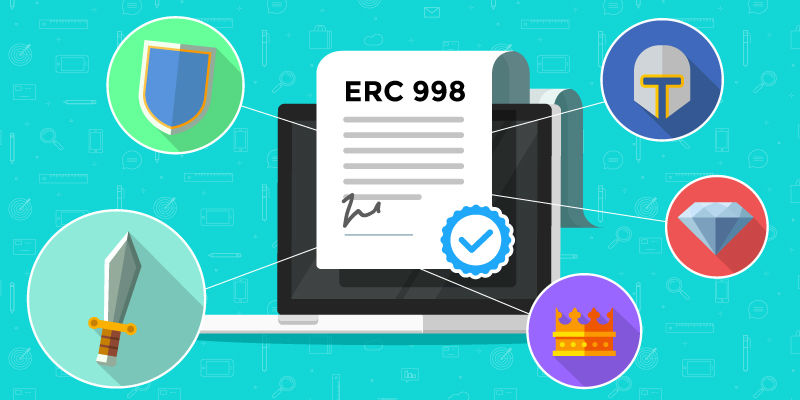With the increasing prominence of non-fungible tokens (NFTs), the risk of hacks and cyberattacks targeting these digital assets has also intensified. Here, we will explore some of the major NFT hacks that happened in 2023 and discuss methods of protecting your valuable digital assets.
NFTs And Their Weaknesses
NFTs are stored on various blockchain platforms, which offer a decentralized and transparent ledger to record transactions. Nevertheless, despite the security measures that are implemented in blockchain technology, NFTs are not immune to the hacks.
The weaknesses lie in the platforms or marketplaces where the NFTs are sold, bought, and stored. Hackers exploit weaknesses in the platforms to gain unauthorized access to the unsuspecting users’ digital wallets and steal their valuable NFTs.

The Nifty Marketplace Hack
One of the major NFT hacks that happened in 2023 was the Nifty Marketplace hack. Nifty Marketplace is a renowned platform for selling and buying NFTs. In that hacking incident, a group of high-profile hackers managed to breach the platform’s security networks and access users’ digital wallets.
The criminals exploited a weakness in the smart contract code of the marketplace, which enabled them to bypass the validation process and gain unauthorized access to users’ wallets. After they got inside, they transferred the victims’ NFTs to their wallets, effectively stealing their valuable digital assets.
The Nifty Marketplace hack caused the theft of millions of dollars worth of NFTs. The incident highlighted the importance of strong security measures and regular audits of smart contract codes to help prevent such hacks.
The OpenSea Phishing Attack
Another notable NFT hack in 2023 hit OpenSea, one of the biggest NFT marketplaces. This attack consisted of a complex phishing campaign, where the hackers sent out phony emails and messages impersonating OpenSea support staff.
These phishing emails and messages had links to malicious websites that resembled the official OpenSea platform. When the unsuspecting victims clicked on these links and entered their login credentials, the hackers captured their information and accessed their digital wallets.
Once inside the victims’ wallets, the hackers rapidly transferred their valuable NFTs to their wallets, leaving the victims with empty accounts. The hack raised concerns about the need for increased user awareness and education about phishing attacks that target NFT owners.
The MetaMask Credential Theft
MetaMask is a popular digital wallet used for storing and managing non-fungible tokens (NFTs). In 2023, a major security breach happened, resulting in the theft of users’ MetaMask credentials and the eventual loss of their NFTs.
These hackers used a complex malware attack that targeted users who had installed unofficial MetaMask browser extensions. These illegal and malicious extensions, disguised as legitimate ones, collected users’ credentials when they entered them on phony MetaMask login pages.
With these stolen credentials, the hackers accessed the victims’ MetaMask wallets and transferred their valuable NFTs to their accounts. The incident highlighted the importance of using official and trusted software applications and extensions to help protect users’ digital assets.
![]()
Preventive Measures To Protect Your NFTs
With the growing number of NFT hacks, it is important to implement proactive measures to help protect your valuable digital assets. Here are some preventive steps users take:
Use Secure Wallets
It is important to select reputable and secure digital wallets to store your NFTs. Look out for wallets that have already undergone security audits and have a track record of always protecting users’ assets. Hardware wallets like Trezor or Ledger offer an additional layer of security by storing the private keys offline.
Be Wary Of Phishing Attacks
Stay vigilant against phishing attacks aimed at NFT owners. Take the extra precaution of verifying website URLs before accessing any platforms or entering login credentials and conducting transactions. Refrain from clicking on dubious links, and never disclose personal information or private keys to anyone.
Enable Two-Factor Authentication (2FA)
Enable two-factor authentication (2FA) whenever it is possible. This strategy adds an extra security layer, which needs a second verification step using a mobile app or SMS code, together with login credentials.
Update Software And Wallets Often
Always ensure that you frequently update your digital wallets and software applications using the latest security patches to address and resolve vulnerabilities to enhance the security measures released by developers.
Educate Yourself
Ensure that you are always informed about the latest security threats and best practices for protecting your NFTs. Follow reputable sources and engage With the NFT community to learn from others’ experiences. By educating yourself, you can easily make informed decisions and minimize the risk of falling victim to the hacks.
The Takeaway
As NFTs keep gaining popularity, the risk of hacks and other types of cyberattacks targeting digital assets also increases. The major NFT hacks of 2023 showed the vulnerabilities in platforms, marketplaces, and wallets used to sell, buy, and store NFTs.
To protect these valuable digital assets, it is important to use secure wallets and be wary of phishing attacks, enable 2FA, update software and wallets often, and educate yourself about the latest security threats.
By implementing the preventive measures, you can considerably mitigate the risk of being a victim of NFT hacks and guarantee the safety of your digital assets.





